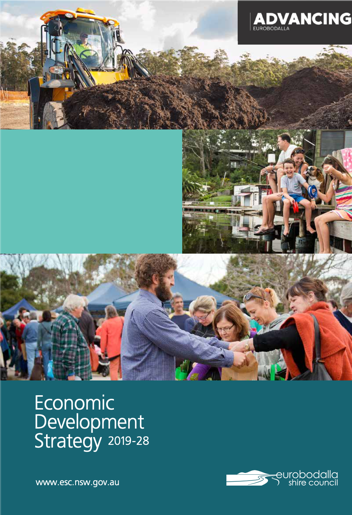Commitment met … and before the course was due
- The Beagle

- Feb 25, 2020
- 6 min read
by Trevor Moore

One of the folks who commented on my article last week was amused by use of the phrase “in due course”. In using this imprecise phrase, I fell into a trap of my own making. I should have said that I would let you know what might have happened by 09:01 on Wednesday 19 February 2020 which was the 10-day marker after I sent my email. I will be more precise in the future. I am both chastened and amused. I also noted the observation that any response would be vetted by lawyers. Maybe so but I assume that this is factored into the “dealing with emails from pesky ratepayers” 10-day process.

Another, and possibly cynical, commenter suggested, in effect, that I should not hold my breath. Well, you were wrong. I did get a response: it arrived in my inbox at 1611 on 12 February 2020. It arrived within the 10 working days. I had expected a response along the lines of “I appreciate your questions and they are ones that we are addressing. At present the pressures of dealing with the aftermath of the bushfires proscribe me from giving you a fuller response. I appreciate your understanding.” Instead, the response I got runs to over three pages and it is signed by the General Manager who must, therefore, have read it.
Many of us, I expect, have been in the position where we have had to answer questions and not provide a hostage to fortune. It’s not always easy to do this and when you read the full response you can form your own judgement about how well the writer has navigated the potential minefields and to what extent there is an answer. Nonetheless I cannot help but make some remarks.
The questions
I asked four questions that I list below with some comments on the response.
1. It seems that you failed to ensure that adequate emergency / disaster planning was done. The Eurobodalla Local Emergency Management Plan 2019 does not seem to have been fit for purpose (see here) and seems to have been done in a hurry. Why was this?
The response (which runs for 1½ pages) concludes by saying that “the Eurobodalla Local Emergency Management Plan 2019 was first developed in 2016 with the current version approved by the Eurobodalla Local Emergency Management Committee on 10 September 2019. Your assumptions that this was prepared in a hurry are not factual.”
My problem with the response is that it seems defensive: the 2019 plan contains no actions and calls up a 2011 RFS risk management plan. I got a sense from the response that I was hearing Morrison hiding behind the States when he was defending the lack of Federal action on the fires. In this case, the writer is (and I understand why) hiding behind the complexities of “the system”. As Mr Schneebly (Jack Black) in School Of Rock might have said; “it’s all down to The Man.”
2. The Council website says that you are responsible (and I assume accountable) for communication. Will you let me know how you would assess the communications performance of the Council over the recent crisis?
The response details the communication that was done but, not surprisingly, does not contain an assessment of its effectiveness. Now, that is a piece of work that could be undertaken pretty quickly and easily (and it wouldn’t cost a great deal).
I attended the 350.org event last Saturday at The Red Door (organised by the South Coast Health and Sustainability Alliance (SHASA)). Perhaps the collection of 40 or so people who were there is not representative of community sentiment, but one of the key points to come out was that communication was poor. On the other hand, to be fair, and as I pointed out earlier, communication is impossible to get right.
3. What action do you propose to take to ensure that adequate emergency plans are rapidly developed and tested?
The response says that the “Eurobodalla Local Emergency Management Committee (LEMC) will review the Local Emergency Management Plan” and that any changes “including those needed to make the evacuation centres and community infrastructure more resilient and effective will become the basis of applications for funding to the Office of Emergency Management.” The answer is silent on testing but the answer to the next question anticipates “exercises conducted to test all or part of the [updated Local Emergency Management] Plan”
4. How will the development and testing of those plans take account of public opinion and sentiment?
The response this question is weak … and brief: of the 1134 words in the response just 74 respond to this question. I would have expected some comments about the importance of community sentiment and opinion. The response could have made a comment about continually improving linkages between the community and the Council without necessarily committing anyone. Instead, and unfortunately, it says nothing of substance.
A challenge … for all of us
Now the fact that I got a response is a good thing. But it is especially a good thing because I am sure they are all running around like blue-arsed flies trying to deal with the aftermath of the bushfires. Of course, the operational (and strategic) problems that arise do not preclude dealing with pesky ratepayers … life is tough at the top, but you still have to do it all.
I am guessing that the problems of the General Manager coalesce around one major issue and that issue is the economic outcome of the events of last month; in addressing it, she will need to advise the Council on some pretty tricky matters.
Dealing with the January fires has cost, is costing and will continue to cost serious money. Some of that money may be recoverable from State or Federal Governments. But either way we can assume that there is a hole in the 2019–2020 Shire budget. Now, one response to this is to put the rates up. But there are 500 houses that used to be there that are not now, whose owners are clearly under stress and duress. Businesses have been affected. While the State government is providing rate relief over the next 6 months, rebuilding will take longer than that. Putting the rates up is not an attractive option … so, what services might be cut? Can the budget be rejigged so as not to cut anything and to provide longer-term rate relief to those businesses and homeowners? That is a non-trivial and time-consuming and practical problem and we should all get that. And it wouldn’t have mattered if a decent emergency plan had been in place. The fires would still have happened, though possibly with less disastrous effect, but we cannot know that.

Eurobodalla Shire - Gross Regional Product - it grew 1.4% between the 2018 year and the 2019 year (Source: National Institute of Economic and Industry Research (NIEIR) ©2019)
The second strand of the money problem is economic rather than financial.
The Shire’s regional domestic product is about $1.59bn (see here). Now it’s hard to know, without any decent economic modelling, what the impact of the bushfires has been on this, but we can suppose that January is the biggest month and that it was significantly hit. So, why is this important? Well, those 500 houses – or most of them – will be rebuilt. The damage to other property and the environment will need to be repaired. That will cost money but more importantly it will require skills and it will require more skills that we have locally. We will need to import people to do this work. We will pay them locally, but they will spend the money somewhere else, probably where they come from. This is a double whammy: we lose the economic benefit of a month of tourism and we have to export local money to fix the problem.
There may well be no dramatic short-term solution to this. But there is a medium to long term opportunity and that would be to put some oomph behind the Economic Development Strategy 2019 – 2028 which is a good document that, with some twiddling, could facilitate short term plans that would show at least medium-term benefit. Get this moving: boost the resource applied to the plan. Involve people. Make it happen. Of course, it won’t fix everything, but it would be a start. Above all … talk to people.
I should say that I was assisted in my dealings with the administration by a woman who will remain nameless. She is an example of a customer-focussed public servant and I hope that the relevant senior executive recognises that.

Other notes:
I am sure you have looked at the Gross Regional Product chart above and scratched your head over some definitions; Well, here they are (at least according to .idcommunity:
o Headline Gross Regional Product (GRP) is a measure of size or net wealth generated by the local economy. Changes in this figure over time can represent changes in employment, productivity or the types of industries in the area.
o Local Industry GRP shows the value of the local economy, generated by the local workers within the area regardless of where they live, after taxes and dividends leave the area. It is best thought of as GRP produced by local industries.
o Local Residents GRP refers to the economic output of the residents of the area regardless of where they work. It is best thought of as the income received by people in the Shire. If the Residents GRP is high relative to the Local Industry GRP, this indicates that residents are contributing their economic productivity to other areas (most likely commuting out)


